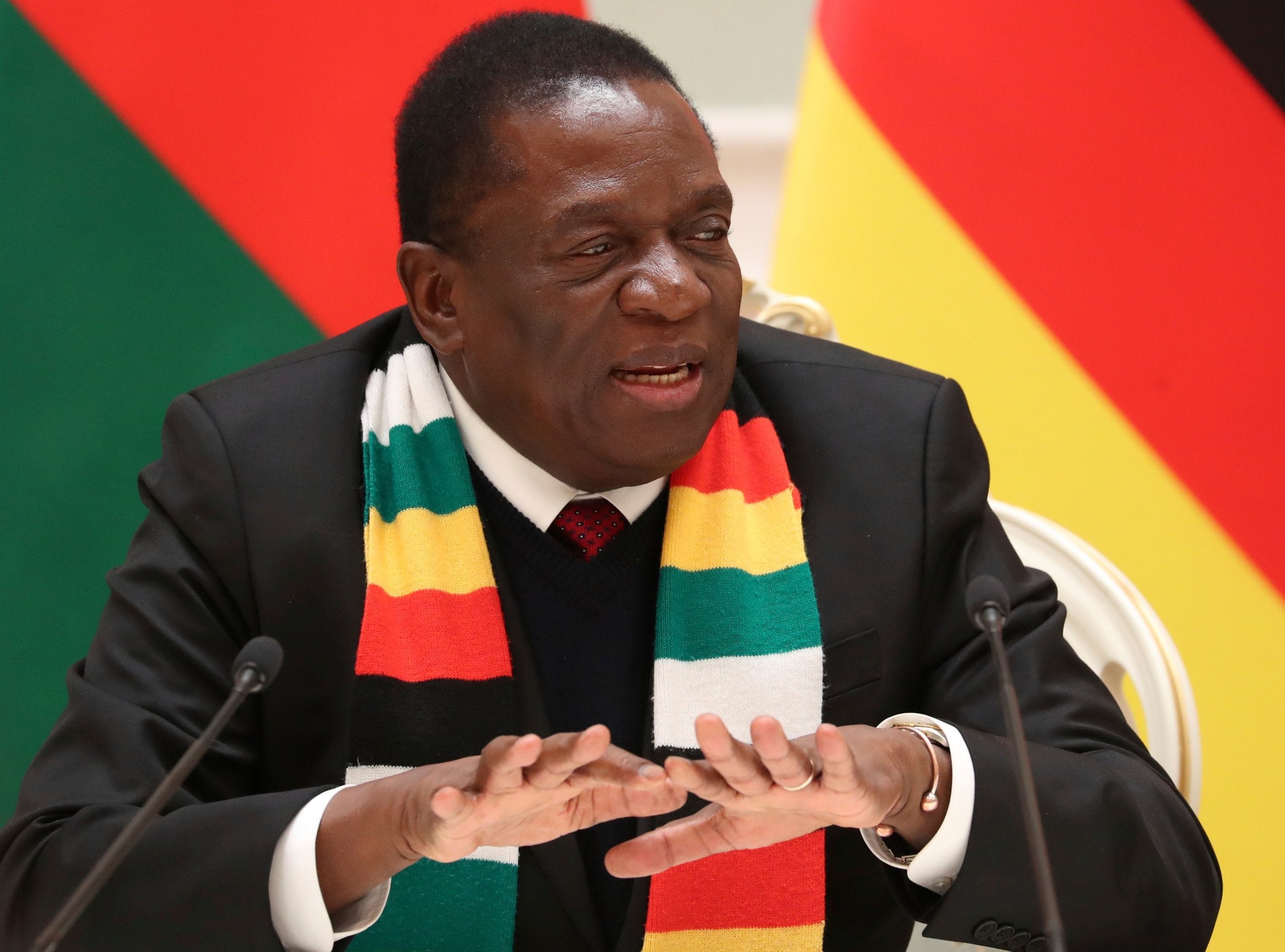Zimbabwe forces ‘total internet shutdown’ amid violent crackdown over fuel price protests
Catholic bishops denounce government's 'intolerant handling of dissent' and failure to halt economic collapse

Zimbabwe’s government has again forced a “total internet shutdown,” a media group said, after a days-long violent crackdown on people protesting dramatic fuel price increases.
MISA-Zimbabwe shared a text message from the country’s largest telecom company, Econet, calling the government order “beyond our reasonable control”. The shutdown will face a court challenge from the group and Zimbabwe Lawyers for Human Rights.
On Friday, prominent pastor and activist Evan Mawarire, who faces a possible 20 years in prison on a subversion charge, is set to appear in court, as one of more than 600 people arrested this week.
Mr Mawarire called it “heartbreaking” to see the new government of president Emmerson Mnangagwa acting like that of former leader Robert Mugabe. Mr Mawarire is accused of inciting civil disobedience online.
“Our country is going through one of the most trying periods in its history,” the Zimbabwe Catholic Bishops’ Conference said in a sweeping statement lamenting the government’s “intolerant handling of dissent” and its failure to halt economic collapse.
International calls for restraint by Zimbabwe’s security forces are growing, while Mr Mnangagwa prepares to plead for more investment at the World Economic Forum in Davos, Switzerland. He announced the fuel price increase on the eve of his overseas trip, leaving hard-line former military commander and vice president Constantino Chiwenga as acting president.
Gasoline in the economically shattered country is now the world’s most expensive. Zimbabweans heeded a nationwide stay-at-home call earlier this week in protest. Rights groups and others have accused security forces of targeting activists and labour leaders in response, with the United States expressing alarm.

The Zimbabwe Association of Doctors for Human Rights has said it had treated 68 cases of gunshot wounds and more than 100 other cases of “assaults with sharp objects, booted feet, baton sticks” and more. Hungry residents of the capital, Harare, who ventured out seeking food reported being tear-gassed by police.
Reports on the death toll have varied. Amnesty International said eight people were killed when police and military fired on crowds, while Zimbabwe’s government said three people were killed, which included a policeman stoned to death by an angry crowd.
The demonstrations amount to “terrorism,” information minister Monica Mutsvangwa said, blaming the opposition. State security minister Owen Ncube thanked security forces for “standing firm”.
Zimbabweans had briefly rejoiced when Mr Mnangagwa succeeded Mr Mugabe, who was forced out in late 2017, thinking the new president would deliver on his refrain that the country “is open for business”. But frustration has risen over the lack of improvement in the collapsed economy, which does not even have a currency of its own.

The UK’s minister for Africa, Harriett Baldwin, has summoned Zimbabwe’s ambassador to discuss “disturbing reports of use of live ammunition, intimidation and excessive force” against protesters.
The European Union in a statement late on Thursday noted the “disproportionate use of force by security personnel” and urged internet service be restored.
Associated Press
Join our commenting forum
Join thought-provoking conversations, follow other Independent readers and see their replies
Comments
Bookmark popover
Removed from bookmarks